Roles and permissions
Video
|
In this video (04:25), GBIF Data Administrator, Marie Grosjean, describes the roles and permissions in GRSciColl. If you are unable to watch the embedded Vimeo video, you can download it locally on the Files for download page. |
Video transcript
Click to expand
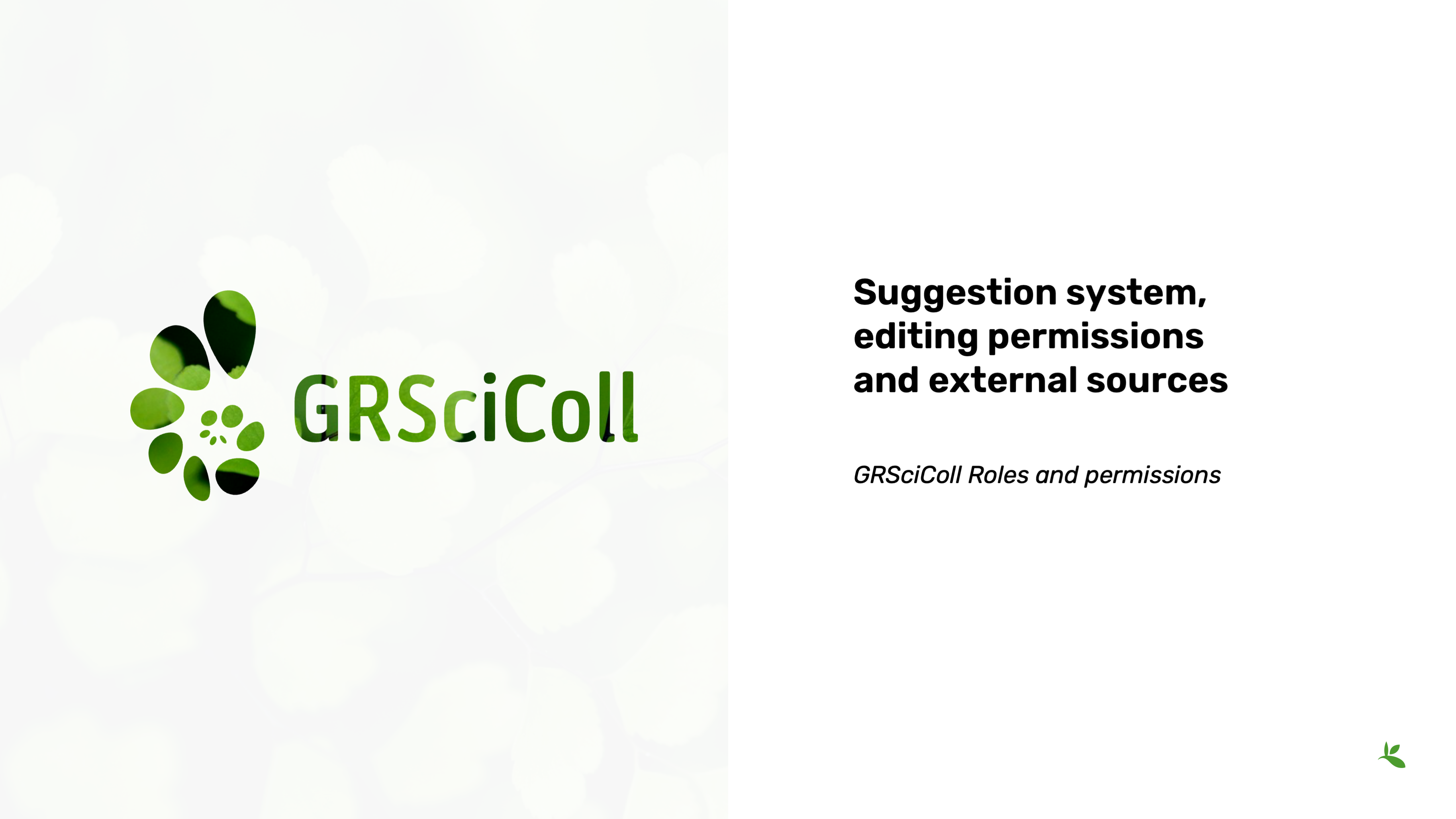
The information on GRSciColl is managed in the GBIF registry interface and the GBIF registry API.
Suggestions
Anyone can make update suggestions on GRSciColl. Making a suggestion doesn’t require any account nor associated permission. Suggestions can be made via the registry web interface or via the registry API on collection and institution entries.
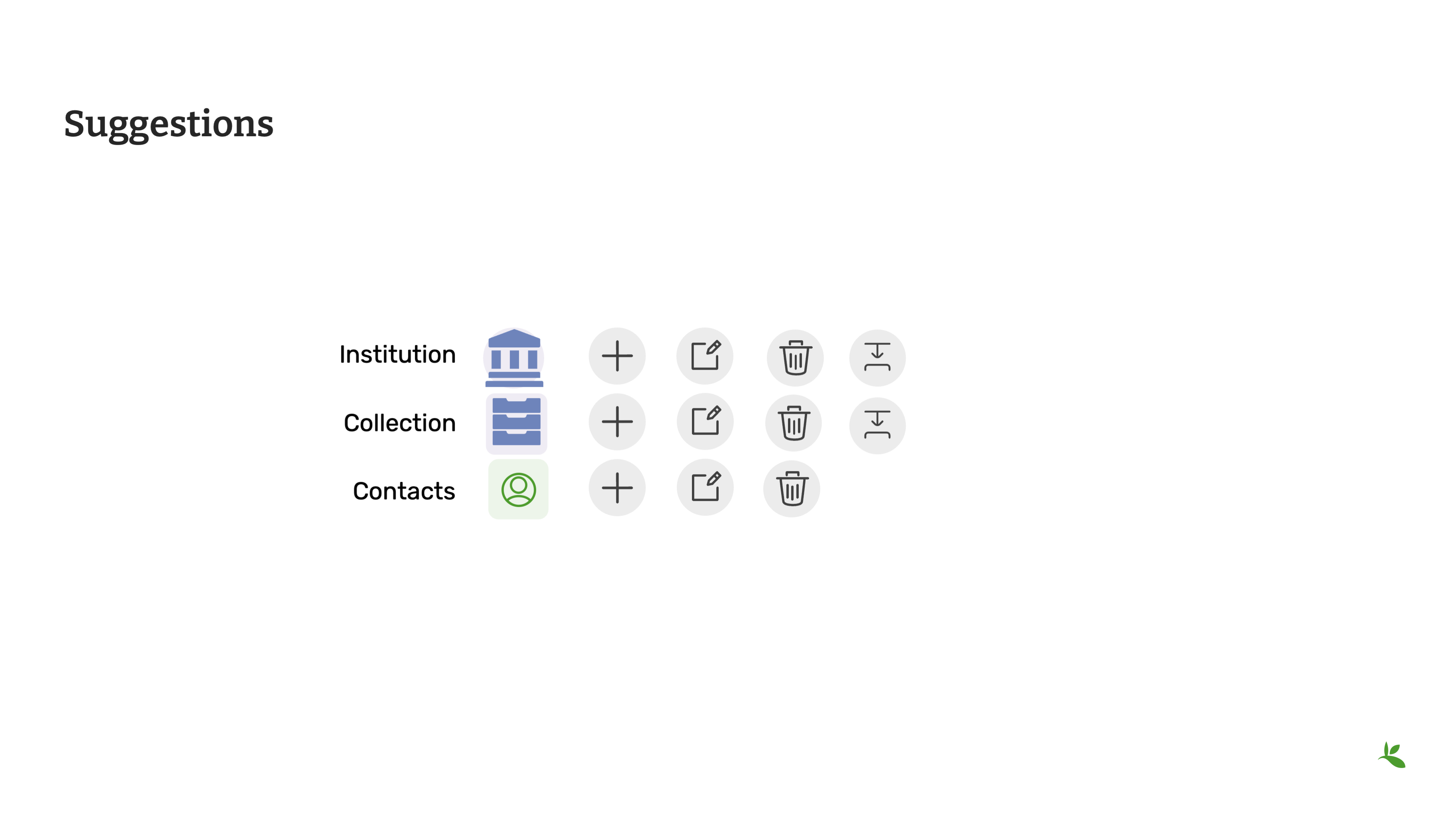
Here are the types of suggestions that can be made:
-
Sending comments
-
Creating institutions and collections
-
Updating the core information for institutions and collections
-
Creating, deleting or updating contacts for institutions and collections
-
Deleting institutions and collections
-
Merging institutions and collections
-
Transforming institution entries into collection entries
The suggestion will be sent to a reviewer who can apply, modify or discard it. The reviewer can be an editor, a mediator or an administrator with the permission for the entry concerned.
Editors, mediators and administrators
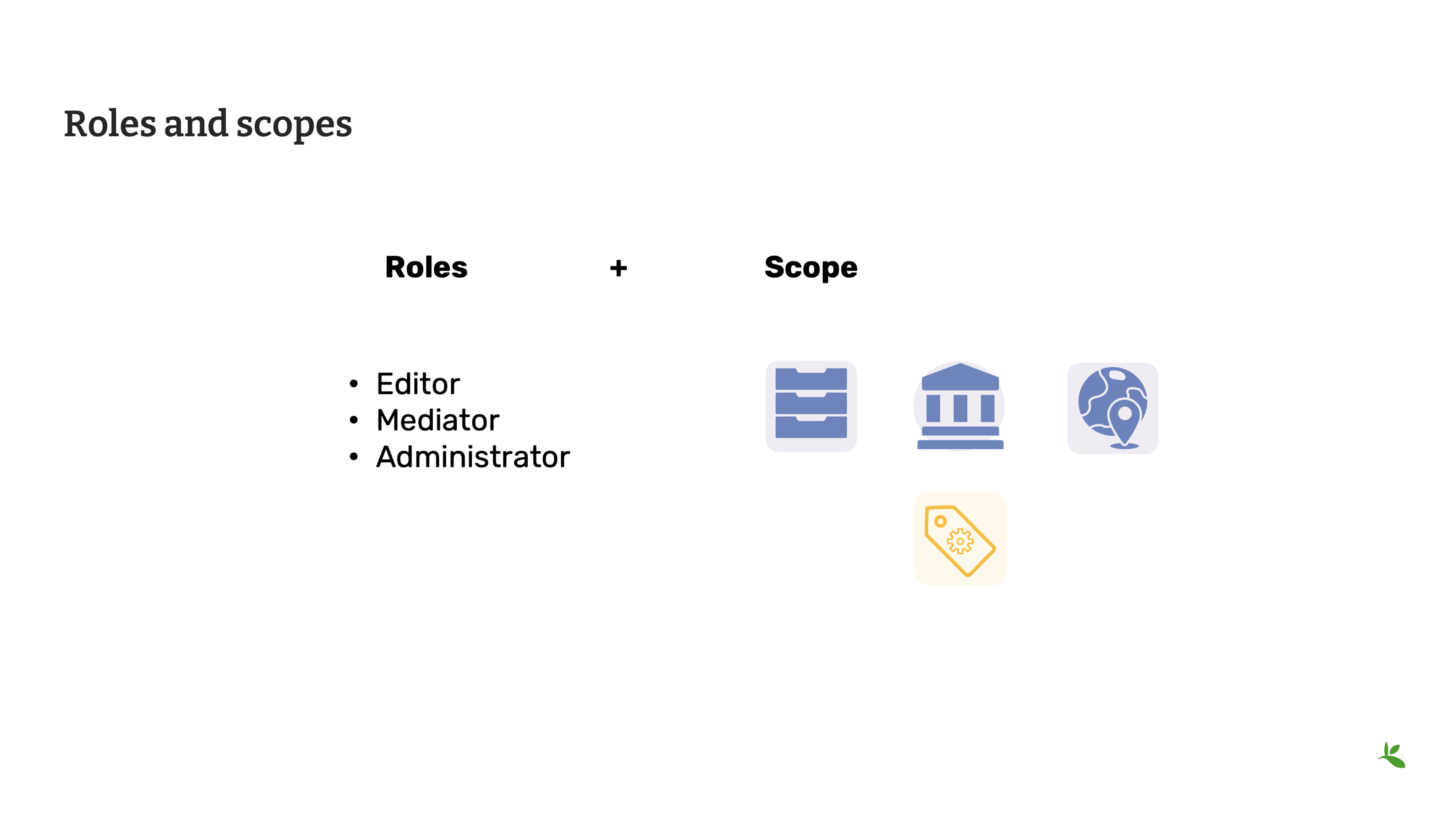
Users who have registered an account on GBIF.org can be given special permissions to make edits directly in the GBIF registry or via the GBIF registry API. In the context of GRSciColl, users can be given one of the three following roles:
-
Editor
-
Mediator
-
Administrator
These roles are associated with different levels of permission and are always accompanied by a scope. The permission scope defines the entities for which the permissions apply. Here are the possible scopes:
-
One or several collections
-
One or several institutions (which includes all associated collections)
-
One or several countries (which includes all associated institutions and collections)
-
One or several machine tag namespace
| The permission scope can be a combination of all of the above. |
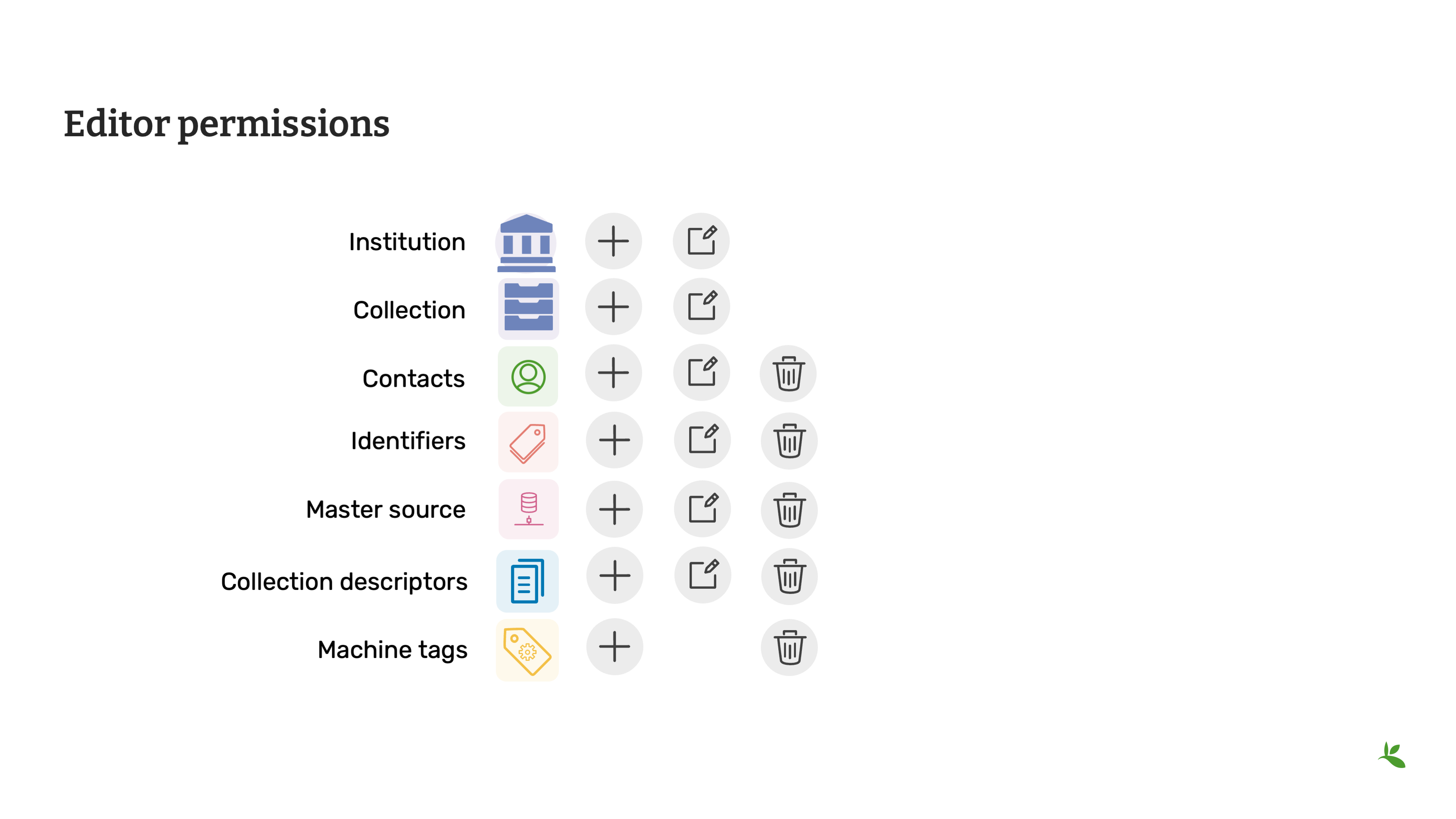
An editor can make the following type of changes for the entries within their scope:
-
Creating institutions and collections
-
Updating the core information for institutions and collections
-
Creating, deleting or updating contacts for institutions and collections
-
Creating, deleting or updating identifiers for institutions and collections
-
Adding or deleting master sources for institutions and collections (unless the collection is * connected to Index Hebariorum)
-
Uploading, updating or deleting collection descriptors for collections
-
Add machine tags to collections and institutions if the machine tags namespace used is within their permission scope
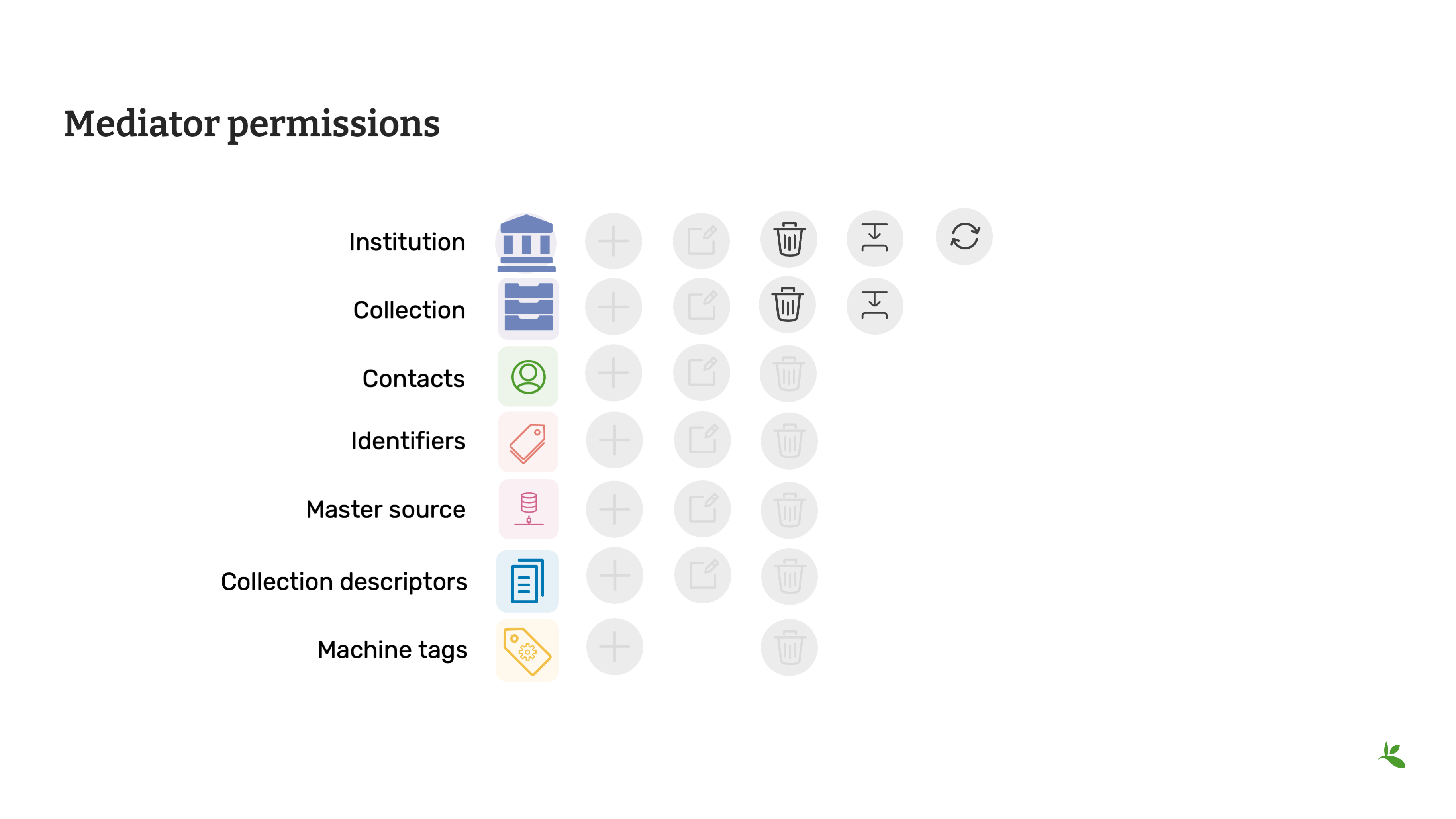
A mediator can make the same changes as an editor, plus the following changes:
-
Deleting institutions and collections
-
Merging institutions and collections
-
Transforming institution entries into collection entries
The most common types of permissions on GRSciColl are for institutional editors (who are responsible for updating their institution and associated collections) and national mediators (who manage entries for an entire country).
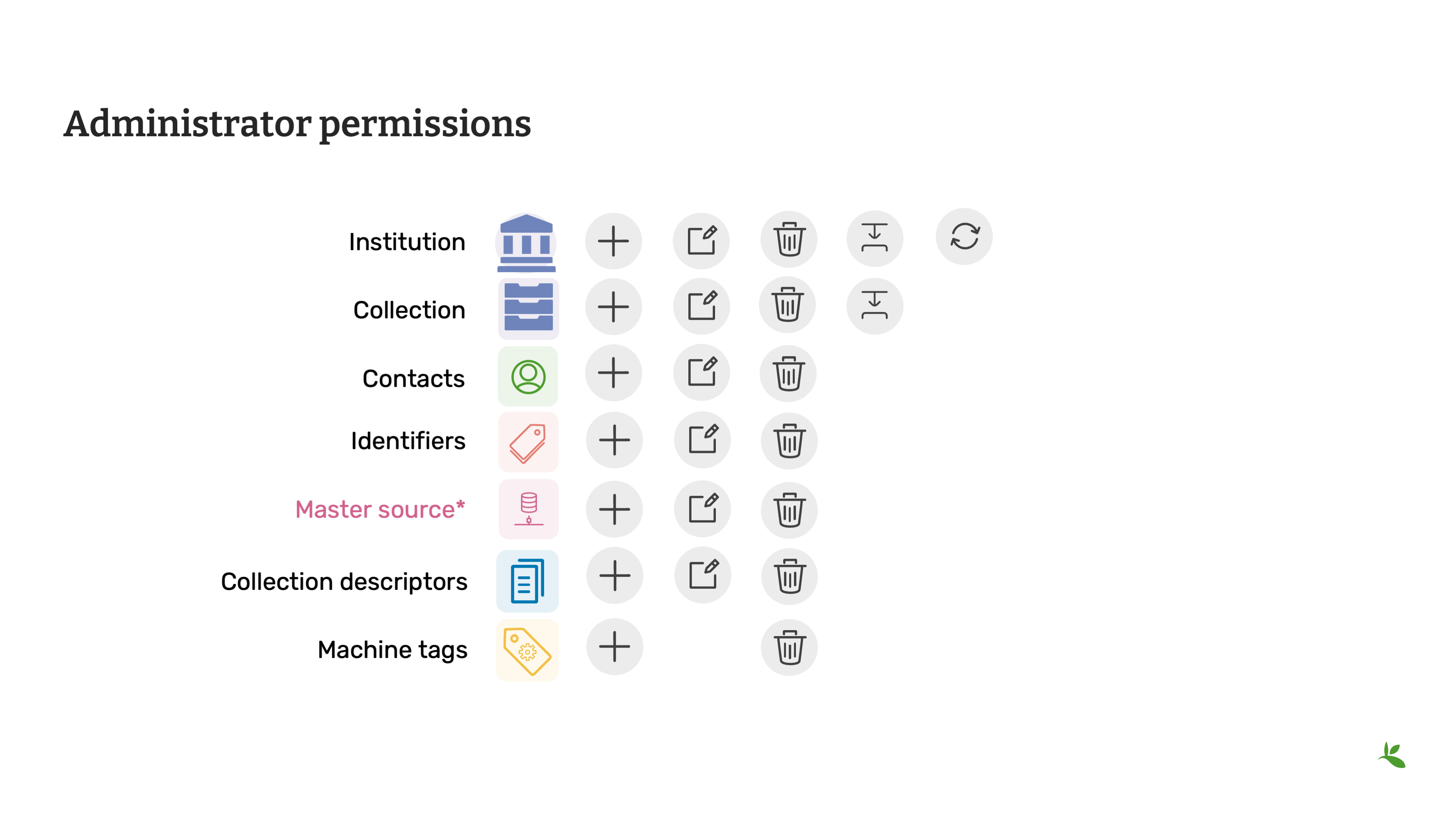
An administrator can do everything that mediators do plus restore deleted entries and disconnecting collections from Index Herbariorum.
| Only GBIF Secretariat staff are GRSciColl administrators. |
Review of suggestions
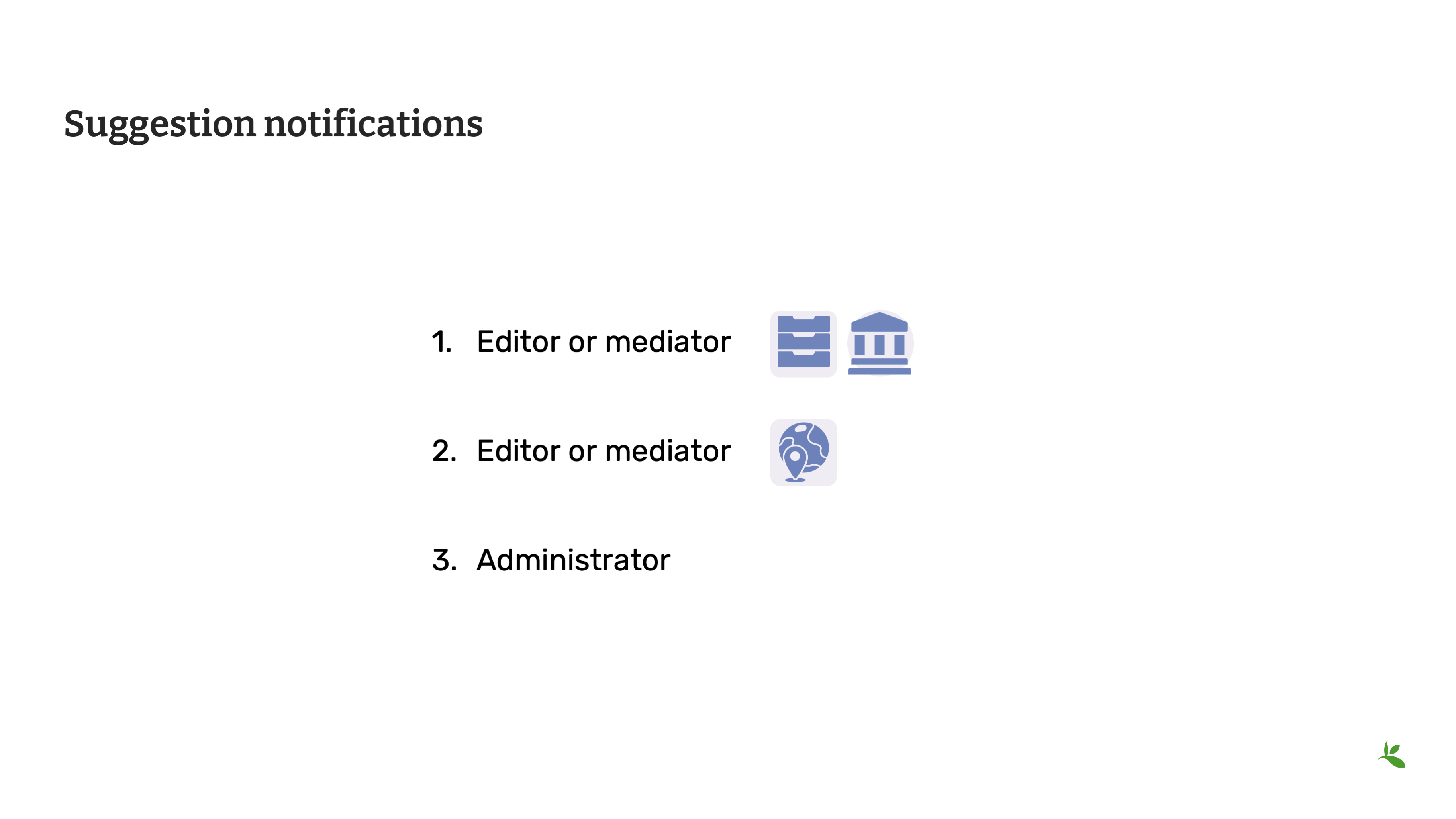
Editors, mediators and administrators can also apply the suggestions that correspond to their permission scope and roles.
Suggestion notifications aren’t sent to all the editors and mediators responsible for an entry. If a suggestion is made on a collection or institution:
-
GRSciColl notifies collection and institution editors
-
If there are no collection or institution editor, the country editor or mediator is notified
-
If there is no mediator for the country, only scientific-collections@gbif.org is notified and administrators review the suggestion.
Summary of roles and permissions
The table below summarises the permissions associated with each role. In the table, the letters represent the following:
* “S” means it can be suggested * “E” means editors can make or apply the change * “M” means mediators can make or apply the change * “A” means administrators can make or apply the change
| Elements \ actions | add | update | delete | merge | transform | Map occurrences |
|---|---|---|---|---|---|---|
institution |
S E M A |
S E M A |
S M A |
S M A |
S M A |
E M A |
collection |
S E M A |
S E M A |
S M A |
S M A |
E M A |
|
identifiers |
E M A |
E M A |
E M A |
|||
Master source |
E M A |
E M A |
E* M* A |
|||
Occurrence mapping |
E M A |
E M A |
||||
Collection descriptors |
E M A |
E M A |
E M A |
|||
Machine tags |
E** M** A |
E** M** A |
E** M** A |
* Collections with the master source from Index Hebrariorum can only be disconnected by administrators.
** Machine tags can only be added if the namespace is within permission scope.
Review
|
Quiz yourself on the concepts covered in this module. The three hypothetical users were given the following permissions:
Who can apply or make the following updates?
|